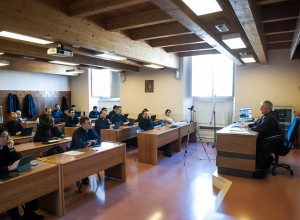
Tuesday, Feb. 20 marked the beginning of the sixth course on the Ars Celebrandi, which aims to bring about more fruitful participation in the celebration of the Eucharist by both priests and the faithful.
Opening the course was H.E. Most Rev. Vittorio Francesco Viola, Archbishop and secretary of the Dicastery for Divine Worship and the Discipline of the Sacraments, who spoke on the ars celebrandi in relation to the Apostolic Letter Desiderio Desideri.
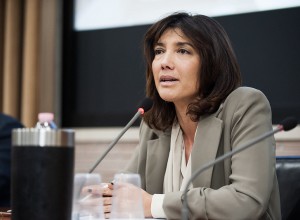
The fourth edition of the Migrant and Refugee Study Day, entitled Narrating Migration: Stories, Faces, Hopes, was held on Wednesday, February 15, 2023. The lectures explored the topic Communication on Migrants and Refugees between Solidarity and Fear. The event was promoted by the ISCOM Association, the Faculty of Communications, and the “Information, Migrants, and Refugees” Committee.
More than 100 people attended the event, including journalists, those who work in communications departments of organizations committed to the issue, and church leaders and leaders of educational institutions. Less than ten years ago, Pope Francis took his first papal visit to Lampedusa, and now, ten years later, we have the Russian invasion
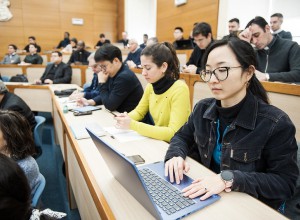
On Wednesday, February 15, 2023 (9 a.m. – 12:30 p.m., Álvaro del Portillo Lecture Hall) the Institute of Liturgy held a study day, which, this year, was dedicated to Divina Perceptio. Perception and Experience of the Mystery of Christ in the Liturgy.
More Information
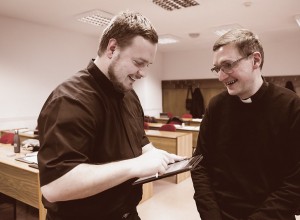
February 16, 2023 has kicked off the 10th edition of the Course for Seminary Trainers, aimed at student priests in Rome who are to serve in the future in the formation and accompaniment of candidates for the priesthood.
Program - Registration
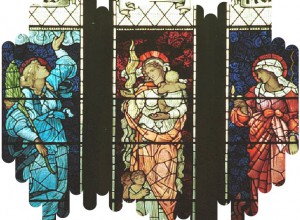
The Department of Moral Theology has taken the initiative to start a course in Spanish, from February 16 to May 25, 2023, on virtue ethics, entitled Características y temas fundamentales de la ética de la virtud, taught by Rev. Prof. Ángel Rodríguez Luño. The course explores the main themes of fundamental morality from the specific perspective of virtue ethics, weaving in other current concepts and the recent Magisterium.
Time: 3:55 p.m. - 5:35 p.m.
Attendance: in-person and online
Language: Spanish
More Information
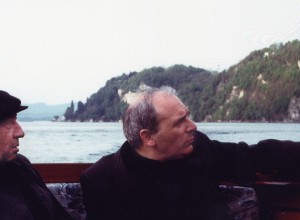
During the second semester, The Most Reverend Msgr. Massimo Camisasca, Bishop Emeritus of the Diocese of Reggio Emilia-Guastalla and former founder and superior of the Fraternity of St. Charles (born from the charism of the Communion and Liberation Movement), will teach a course in the Faculty of Theology on Fr. Luigi Giussani: "His Experience of Mankind and Christ"
The course will consist of two parts. The first shorter part will have a primarily historical focus, addressing crucial moments for Italy and Europe in the second half of the 20th century.
The second more extensive part will have a primarily theological and pedagogical focus, analyzing the most important writings of the Founder of Communion and Liberation.
For information write to
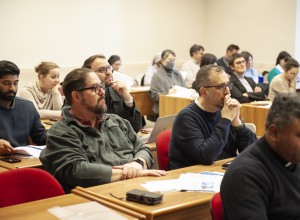
On Friday, Feb. 10, 2023 (9 a.m., Room A202), ISCOM, in collaboration with the Faculty of Communication, arranged a course entitled "Artificial Intelligence Changes the Way We Communicate." The day was split up into three sessions which will address different aspects of how AI helps us to communicate.
Prof. Giovanni Tridente (Pontifical University of the Holy Cross), illustrated on The Church Being Put to the Test of Artificial Intelligence, Dr. Fabio Lazzini (SOGEI) developed the relationship between the voluntary sector and artificial intelligence, Dr. Gabriele Campagnano, from the Presidenza del Consiglio, focused his speech on the relationship
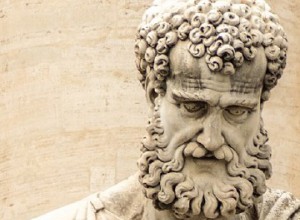
from 3 March to 26 May 2023: 10 lessons
The course is organized by the ISCOM
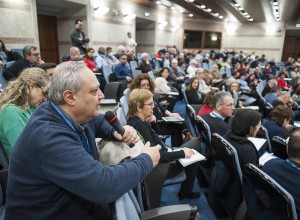
Organized by the Schools of Canon Law and Theology, the Study Week on Spiritual Accompaniment in Movements and New Communities ("Aiding human and supernatural growth") took place from 30 January to 3 February 2023.
The activity was aimed at members of ecclesial movements and new communities involved in the spiritual accompaniment of the faithful, to reflect on the possibilities, challenges and issues related to it, in general and specifically within these ecclesial realities.
More Info

